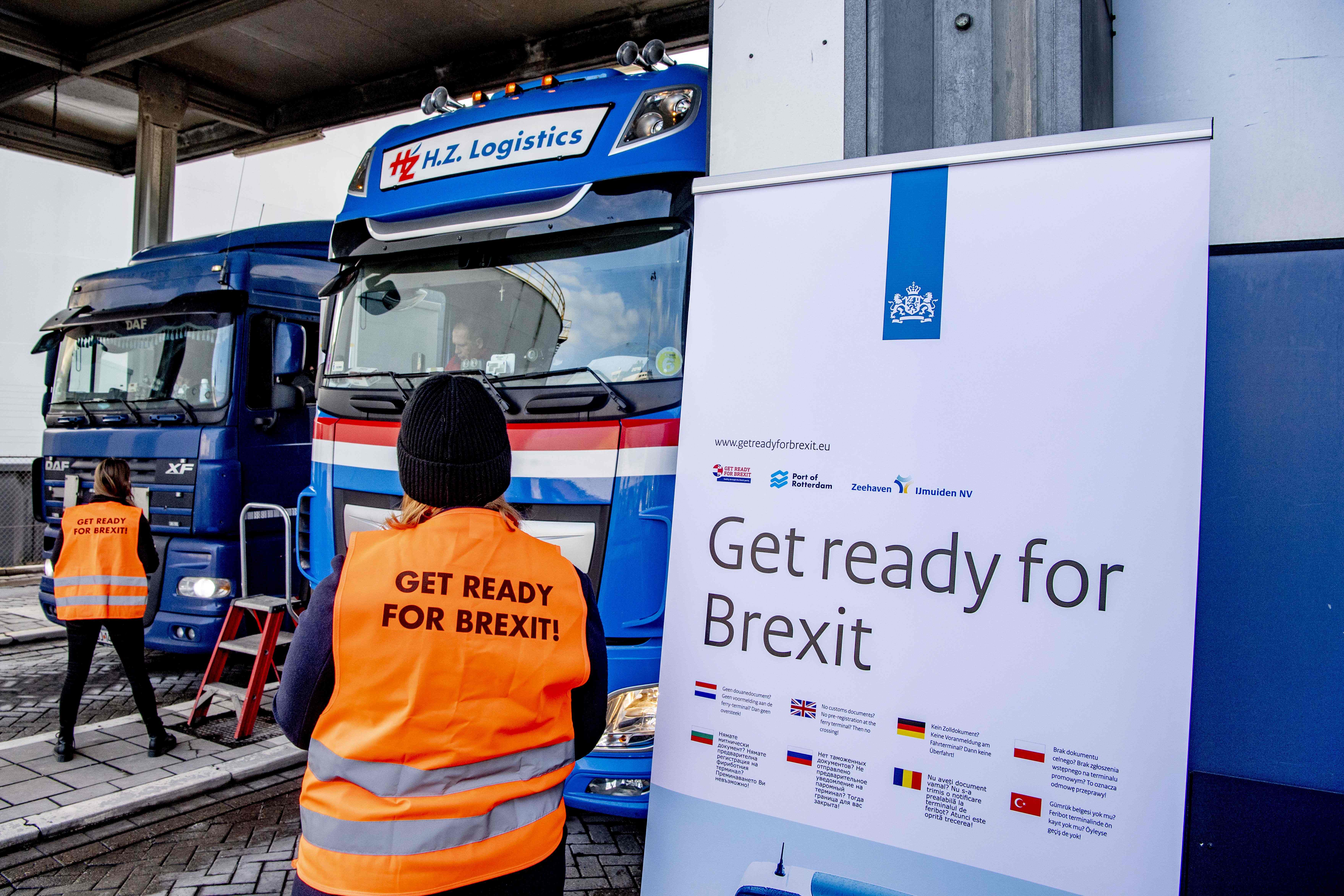Is it too late for a Brexit deal that will prevent an economic crunch?
A deal, it is implied, means commercial life continues as normal after the transition period comes to end on 31 December. But, as Ben Chu explains, that’s a dangerous misconception


For many years now politicians and pundits have reflexively talked in terms of Brexit being a binary outcome for the UK: deal or no deal.
A deal, it is implied, means commercial life continues as normal after the transition period comes to end on 31 December.
Failure to conclude a deal, by contrast, is implied to spell serious disruption for firms and a plethora of adverse economic shocks.
But some business groups, particularly hauliers and traders in Northern Ireland, have been making the point for some time now that even a free trade deal between the UK government and the rest of the EU will not avoid some considerable commercial disruption from early next year.
To understand why, one needs to understand that even the Brexit “deal” that Boris Johnson’s administration is aiming for already represents a pretty severe rupture with the EU.
Even a deal would see us leave the EU single market, which means that products leaving the UK for the continent would need to face regulatory checks at the EU border, meaning delays, relative to now, and more paperwork for trading businesses.
Even a free trade deal, which removes tariffs on exports to the EU, will require customs declarations from UK firms because we will still leave the EU customs union.
“Under any Brexit scenario that includes leaving the customs union and the single market there would be new and additional friction at the EU/UK border," says customs expert Anna Jerzewska.
So how much new friction are we facing no matter what?
Around 145,000 British firms could have to fill out customs forms for the first time, according to the National Audit Office, and it’s been estimated by HMRC there would be an extra 215 million additional declarations required in total every year.
This, according to freight industry estimates, will require 50,000 new private sector customs agents, who are specially trained to fill in new customs forms.
145,000
British firms that will have to fill out customs forms for the first time from 31 December, even under a free trade deal
This is all going to be especially burdensome for companies in Northern Ireland because under the terms of the EU Withdrawal Act the territory will effectively remain in the EU’s single market and customs union (to prevent a hard regulatory and customs land border being created on the island of Ireland).
This border will, instead, be in the Irish Sea, meaning many goods travelling from the rest of the UK to Northern Ireland will have to be checked for compliance with single market rules. And goods travelling from Northern Ireland to Great Britain will have to have customs export declarations attached.
Experts predict around 30 million new customs declarations a year on Great Britain to Northern Ireland trade.
All this will create new work for exporting firms, both in Northern Ireland and the rest of the UK.
That will create new costs for firms. The new customs costs alone are estimated by HMRC to add up to £7.5bn a year. Over time, they will probably be passed on to consumers. But in the immediate term the problem is companies’ lack of familiarity with the new systems being implemented at the border come what may on 31 December.
A new government IT system designed to allow exporters to fill in customs documents in advance only goes live on 23 December. Haulage firms warn the new system has simply not been tested and fear it could easily fall over, especially if it partly relies on hauliers, whose first language is often not English, to operate it.
A survey of customs brokers by the British International Freight Association in September found almost two-thirds did not have enough staff to handle the extra bureaucracy that will be introduced on 31 December and the industry says there will not be 50,000 new customs agents in place by then.
The National Audit Office warned in September that it’s “very unlikely” all firms will be ready for the end of the transition period.
The Bank of England estimates that firms accounting for 30 per cent of exports to the EU are likely to be unprepared.
This could result in queues of trucks and disruption to supplies for UK retailers and manufacturers.
30%
Share of EU exports from UK firms unprepared for new border requirements, according to Bank of England estimates
The UK government could unilaterally decide to waive through hauliers without the requisite paperwork coming from the continent, but the problem is that many of these hauliers do round trips, bringing in goods from the EU and picking up a load in the UK and transporting it back across the Channel.
If they fear they will be stuck in queues on the UK side, some haulage firms warn that these continental drivers might not come at all to the UK.
It’s impossible to know precisely how bad the disruption will be. But the fact that the Bank of England has pencilled in a 1 per cent hit to UK GDP in the first quarter of next year even if we get a deal, solely because of the border disruption, shows that they do not expect it to be economically trivial.
And the impact on individual trading and logistics companies – and their workers and customers – could be very large indeed.
Join our commenting forum
Join thought-provoking conversations, follow other Independent readers and see their replies
Comments
Bookmark popover
Removed from bookmarks